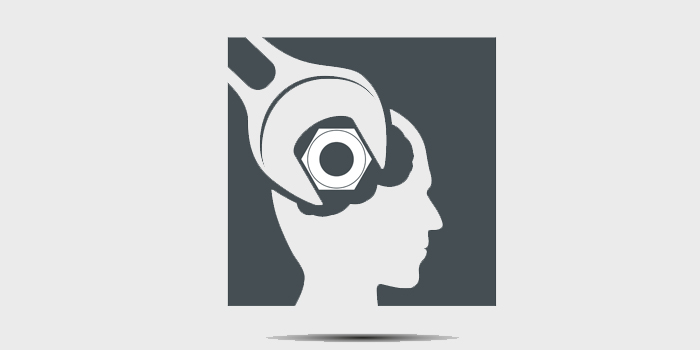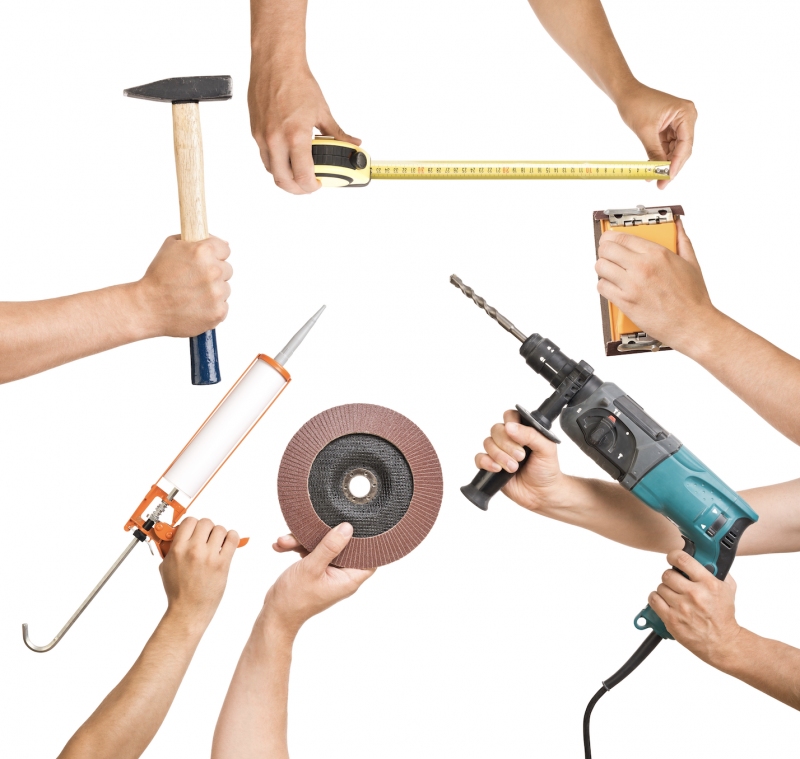
Lately, I’ve been spending less time reading about physical strength and more time on mental strength. For the past few years, I’ve felt off with anxiety and waves of being down and depressed. Honestly, I had no idea why. Something just didn’t feel right. I eat right, I sleep right, I work out, and I coach; what could possibly be off?
Then one day while walking my dogs, it hit me: “The mind and body are connected.” That makes me laugh, like, duh, no shit, they are. What I mean is that they are always working together in unison, and when one is off, problems start to develop. If these problems aren’t addressed, they can lead to injuries, diseases, and possible mental health disorders that could control your life.
RECENT: 10 Ways to Develop Mental Toughness in Young Athletes
Here I was, spending all this time on my body, but only now realizing how important it is to also be spending time on my mind. I’d been neglecting my mind for far too long, and it was starting to catch up with me.
Nobody ever taught me about mental health and strength. Sure, my football coaches would yell at me, telling me I needed to be mentally tougher, but I never really understood it. I understood hard work and getting the job done, but those things were about it. Then I had a thought: “Well, strength is strength. Can we approach mental strength like we do physical strength?”
Honestly, I didn’t even know where to start. I began asking myself about how somebody who was new to strength and conditioning would get started. I took what I came up with and applied it to mental strength. Physical strength is simply the force you place on a physical object. Want to move bigger objects? Increase the amount of force you can produce.
So when would we need mental strength? We usually need mental strength when times are difficult. When times are easy, not much force needs to be applied. But when things get hard, you’ll need enough force to get through those difficult times. Mental strength, then, would be the force you place on a difficult situation. I realize I’m oversimplifying this, but being able to compare the two gave me a starting point with how to approach mental strength.
Over the past few years, the following three things have been the biggest tools in my mental health strength toolbox. I see these as developing mental strength for me because all three of these things were difficult for me to do every day.
But it’s like being a new squatter: the more reps you get in, the better. You need to perfect your technique before you can add weight. Then you have to start moving some weight and increasing that strength. Same with doing things where we have to put our minds in stressful situations: the more you’re exposed to it, the easier it becomes.

donatas1205 © 123rf.com
1. Meditation
“Mindfulness” is a word being thrown around a lot these days due to our obsession with social media. Mindfulness just means being present. It’s focusing all of your attention on what’s happening right now. I never took to the traditional meditation, though. The act of sitting and “ohm-ing.” If that’s what works for you, great! Keep doing it. But just like strength training, we all have slightly different philosophies. I personally can’t sit for five minutes and be still and silent. Well, I can. I’ve done it, but I didn’t see the value in it.
Meditation, for me, was the learning of a skill, or if you already have a skill, improving it. This is usually in the form of a hobby, which is why it’s a question I ask new coaches: “What are your hobbies besides lifting weights and reading about lifting weights? What are the things you do to mentally reset or clear your mind?”
WATCH: Table Talk — Mental Health with Dave Tate and Joe Sullivan
For me, those things are writing, playing guitar, and cooking. Writing I’ll talk about later, but as far as playing guitar and cooking, I’m able to focus everything I have into what I’m doing, whether it’s writing a new song or creating dinner for two from scratch. I have to be present and in the moment when doing those things.
Be a beginner again. Put yourself in a situation where you’re new and you have to start from scratch. It will humble you, but in the process, it will also strengthen and free up your mind.
2. Perspective
This has been one of the most important lessons I’ve learned over the last year, and that’s working on my perception of what’s happening in the world around me. Seeing things for what they really are and not what I create them to be.
This was probably one of the more difficult things I had to do. It took time to come to terms knowing nothing makes me feel a certain way, I chose to give in to such feelings. The hardest part was stopping myself from feeling the way I always did about things and asking myself, “Why am I feeling this way? Is it worth feeling this way?”
Those questions change my perspective almost every time. This allows me to see things in a more positive manner, where before I was just reacting emotionally to situations when they went bad. I’d lose my perception, which made things worse.
I understand that I have a choice on how I respond to any given situation. A negative situation is just an opportunity waiting to be taken advantage of. I took on the mantra of “Things happen for me, not to me.” Life is going to happen no matter what, but when things get hard, we need to keep things in perspective so we don’t lose sight of what we are trying to accomplish.
Sometimes all it takes is for you to step back, close your eyes, take a deep breath, open your eyes, and it changes everything.
3. Journaling
While in high school, I had one of those old school composition books you would get from the drug store: The black cover with the white dots. I’ve always had one to write in and track my workouts in. It’s always fun to look back at them and bring up memories of situations I may have forgotten about if it wasn’t for those books.
Over the years, one of the most useful tools I’ve always had for mental strength is journaling — the act of writing. There’s something special about the relationship between the pen and the paper and watching your words come to life right in front of you as the ink dries on the paper. It allows us to organize our thoughts and make sense of the world around us. It’s therapy, really.
How could I apply writing to developing mental strength? I started this by just writing in the morning and before I went to bed. In the morning, I check in on my mental state, see how I’m feeling, write what I’m excited about for the day, and things I’m grateful for. Starting the day with positive thoughts and a win sets the tone for the new day.
Then in the evening, I reflect on the day: Wins, important events, memories that occurred, and learning opportunities. Where can I improve and get better, and how can I improve those things? This helps with self-awareness and understanding what’s going on in your mind and why.
Prior to my morning and evening routine set-up, I used to just get up and write in the morning. I’d just get up and go. I didn’t even have time to think about what came out. Doing that a few times a week helped get a lot of negative energy and emotions out of my mind and on to paper. I was starting to realize that my ego fed off of that negative energy and that by writing it down, the ego was unable to use it against me.
Over time, the system has evolved and improved, but the best way to start is to just start. Buy a composition book and use it however you want and evolve it, just like your training.
Closing
Like any other coach, I love talking about training and programming and being in the weight room while coaching. But like many of you, I’ve neglected the thing between my ears, and I want you to know that it’s all right to feel. Today I feel mental health is still a taboo subject. It’s something you’re not supposed to talk about. But I’m telling you, it’s OK to talk about it. It’s OK to discuss mental health and the things you’ve got going on, just like discussing your weaknesses in a given lift. If your mental health is a weakness, don’t avoid it. Put the time in and take care of it. Start by changing your perspective. Maybe you’re standing in the way of seeing what your weaknesses truly are.
Need anything? Shoot me an email at nic@thestrengthpursuit.com, even if it’s just to talk.
Header image courtesy of Ivan Trifonenko © 123rf.com











3 Comments